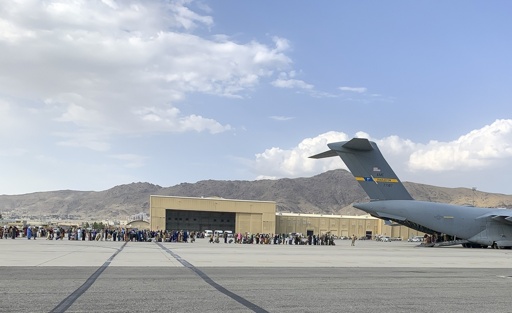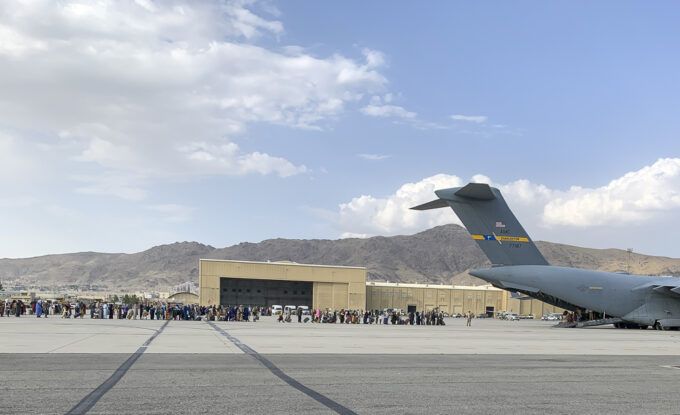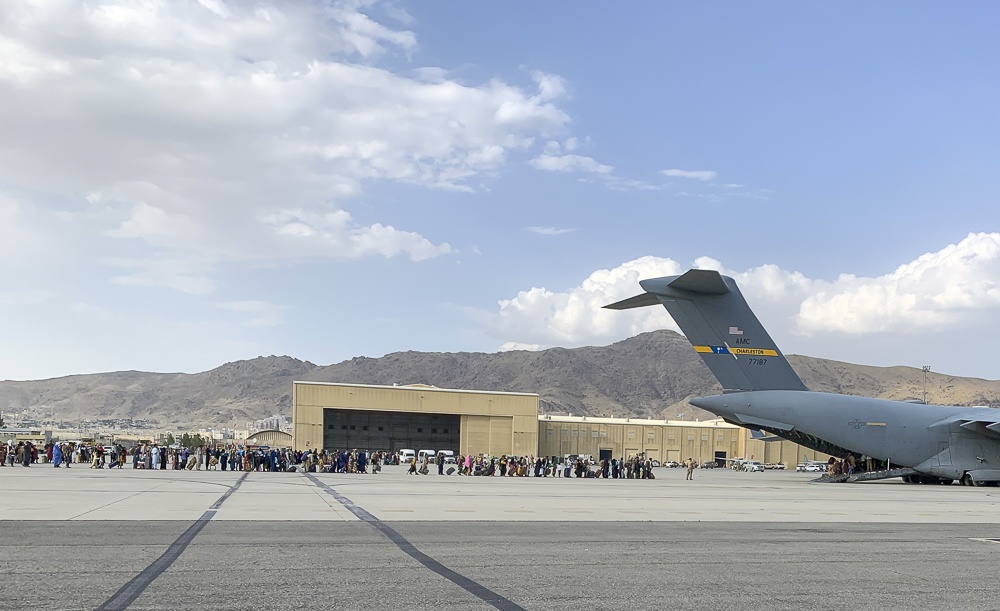Afghan evacuees boarding American aircraft during Operation Allies Refuge in 2021.
In February 2022, a British Royal Marine officer—often among the brightest—made a mistake while seconded to a UK Special Forces base at Regent’s Park barracks in London. He was trying to sift through thousands of false claimants. His task: reduce the number of bogus and potentially dangerous applicants. He believed he was protecting his country.
He emailed a spreadsheet to the wrong people. On it were names of Afghan men and women who had helped the UK. Some had fought. Some interpreted. Some did quieter work. It listed where they lived—and with whom. It also included over a hundred UK special forces and intelligence personnel, plus other government staff.
It was, in effect, a kill list. Handed out by accident.
To keep the Taliban from seeing it—without knowing if they already had—the UK government asked the courts for silence. Also, what if those UK names were passed on to Russia, China or Iran? They got it: an injunction. No one could speak. The truth was buried—not like a hatchet, more like an Afghan peshkabz—so people could be rescued. I repeat: so people could be rescued.
Not all were.
They said 100,000 were at risk. About 18,500 got out. Secret routes. Back channels. The cost? Nearly a billion pounds. The total Afghan resettlement bill? Six billion? Numbers should be easy to count. People are not. Alarmingly, defence sources now said only one in sixteen people in the breach might be genuine—might. The rest with no link to the Armed Forces. There were even whispers of attempted blackmail by one Afghan. Whispers can be pernicious, even if true. Understandably, the real claimants still stranded in Afghanistan were no friends of those exploiting the leak.
The secrecy broke only last week when the courts lifted the injunction—by then a super-injunction, meaning even its existence could not be reported.
For some Afghans, it wasn’t until the morning of 15 July that they received news of it—through emails sent by the UK government in English, Pashto, and Dari. Lawsuits began. At last count, over 600 people were seeking damages. Manchester-based Barings Law is handling many. They take a maximum of 25 percent, so may make over £100 million in fees—though they say they’re giving voice to people who lost homes, livelihoods, and liberty.
It’s such a mess that most Brits who were once there themselves feel sick to their stomachs. Remember, Brits had no warning of Biden’s sudden decision in August 2021 to abandon the Afghans. No time to look after the Triples or interpreters. Most Afghans who escaped did so after 2021. Around 36,000 through official routes. Another 4,500 came after the leak. Nearly 7,000 more are on the way.
Passage wasn’t guaranteed. Vetting takes time. Some still wait. A UK broadsheet published just under 130 photos of Afghans from the list reportedly killed by the Taliban.
I remember seeing many Afghans in Kabul and Helmand working with the UK—men and women genuinely believing they were building a peaceful, post-war Afghanistan, even as some of their politicians fled to the Gulf with some of the cash.
The doors closed on 1 July. No fresh applications. The system is full. Or tired. Or both.
In Parliament, John Healey, the Defence Secretary, rose in a navy suit. His red-and-white tie matched the earlier ministerial red box. One report said the tie was askew. It wasn’t. It was straight as a blade. He said 900 primary applicants, plus 3,600 family members, had been relocated. Cost: £400 million. They’re reviewing policy. The Triples will be reconsidered. Vetting is strong, he said. He said many things. Notably, he didn’t seek political capital from the fact it happened on a Tory watch.
It was said Tory leader Kemi Badenoch had only just learned about the leak—having declined a security briefing months ago. Interestingly, former Tory prime minister Rishi Sunak called a General Election the day after a judge declared the super-injunction should be lifted.
Outside Westminster, people got on with it.
In London, Nooralhaq Nasimi built something. A refugee turned citizen, he founded the Afghanistan & Central Asian Association. They taught English, helped women, showed people how to live here without losing themselves. His daughters, Rabia and Shabnam, joined him—sharp, certain voices for the new Afghans.
Then there’s Dr. Waheed Arian. He came from war. Became a doctor. Now he heals by phone—telemedicine calls to Helmand. His way of fighting back.
But last week, the headlines were never about them. Nor were they just about false claimants. They were also about the Triples.
CF333 and ATF444. Afghan special forces. Trained by the UK. Fought beside them. Killed for them. Left behind by them. I remember such men at such bases as Camp Bastion and Lashkar Gar.
Often small, they moved like hawks. Five thousand served alongside UK Special Forces. Trained, equipped, paid by the UK. That’s not anecdotal—it’s in court filings and official assessments. What’s under scrutiny now isn’t their service, but how they were treated after 2021. But the figure—5,000—is solid.
When they tried to come here, they were turned away. The Ministry said they didn’t serve ‘closely enough.’ Meanwhile, dozens were caught and killed as referenced above. Others tortured. Some ran.
One, a former CF333 sniper—they call him Habibullah—lives in a shared hotel room in Worcester. Supported on about £9 a week. Eighteen months waiting for asylum. Perhaps even greeted by anti-migrant protesters who have no idea what he did for UK forces. Also unaware that only 4% of migrants are asylum seekers. He went on raids. He hid. He fled. He made it here—as I say, perhaps now only hearing people shout him down.
Another flew intelligence drones. Denied entry twice. Still in hiding. Maybe in a basement. Maybe listening for knocks. Maybe hasn’t seen daylight in days.
Johnny Mercer, former Veterans Minister, called the programme hapless. I met Mercer in Kabul in 2008 when he still wore the uniform. T-shirted, sometimes. Boots dusty. He had that look soldiers get—somewhere between angry and exhausted. Never lost his manners, though.
Now they’re reviewing it all. The Triples. The rejections. The silence. Some 2,500 cases are under new scrutiny. Mercer strongly believes that Afghan special forces who worked with British personnel—the Triples—should be here, for their own safety. ‘An uneasy but necessary rescue job,’ someone called it.
The leak, the injunction, the flights—all of it converges. Lawsuits mount. Politicians talk. It’s a numbers game now. Many made it. Many did not. Some wait. Some remember the promises. Some, not a small number, may well be bogus.
That’s the story. Brutal. Simple. Sad. The way most stories end when a state picks up a weapon for someone else, before being obliged by said masters to scarper.
I mean—what were we even doing in Afghanistan? It’s not like we gained any credit from the aggressive likes of JD Vance, who calls the UK ‘a random country that hasn’t fought a war in 30 or 40 years.’ (All the more extraordinary that he chooses the Cotswolds for the family summer holiday this year.) And we all know ‘no new wars’ Trump has already overseen almost as many air strikes in five months as Biden in his whole presidency.
But I keep going back to the Royal Marine.
He sent the wrong file.
It was as simple—and as disastrous—as that.
The post The Afghan Kill List appeared first on CounterPunch.org.
From CounterPunch.org via this RSS feed





